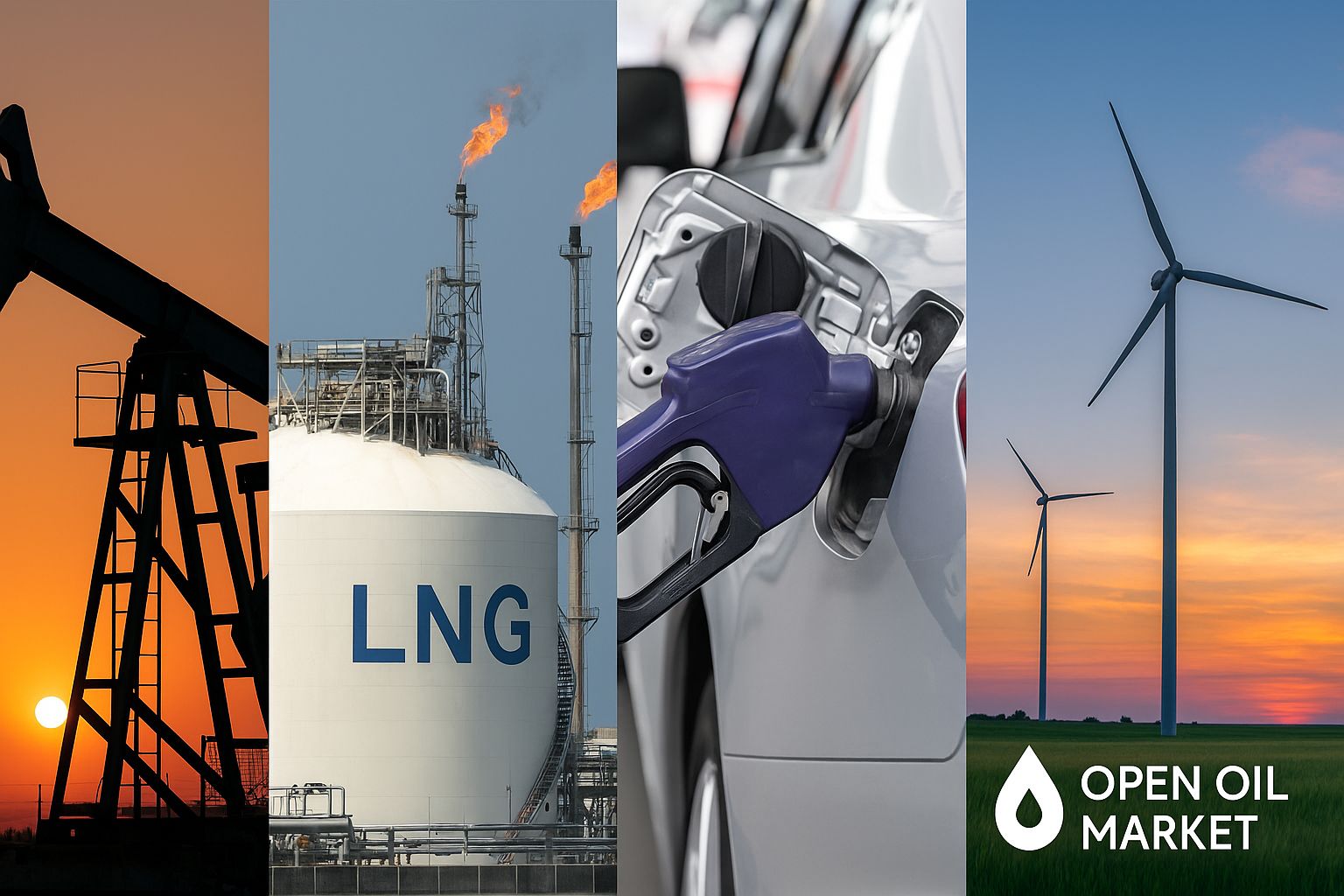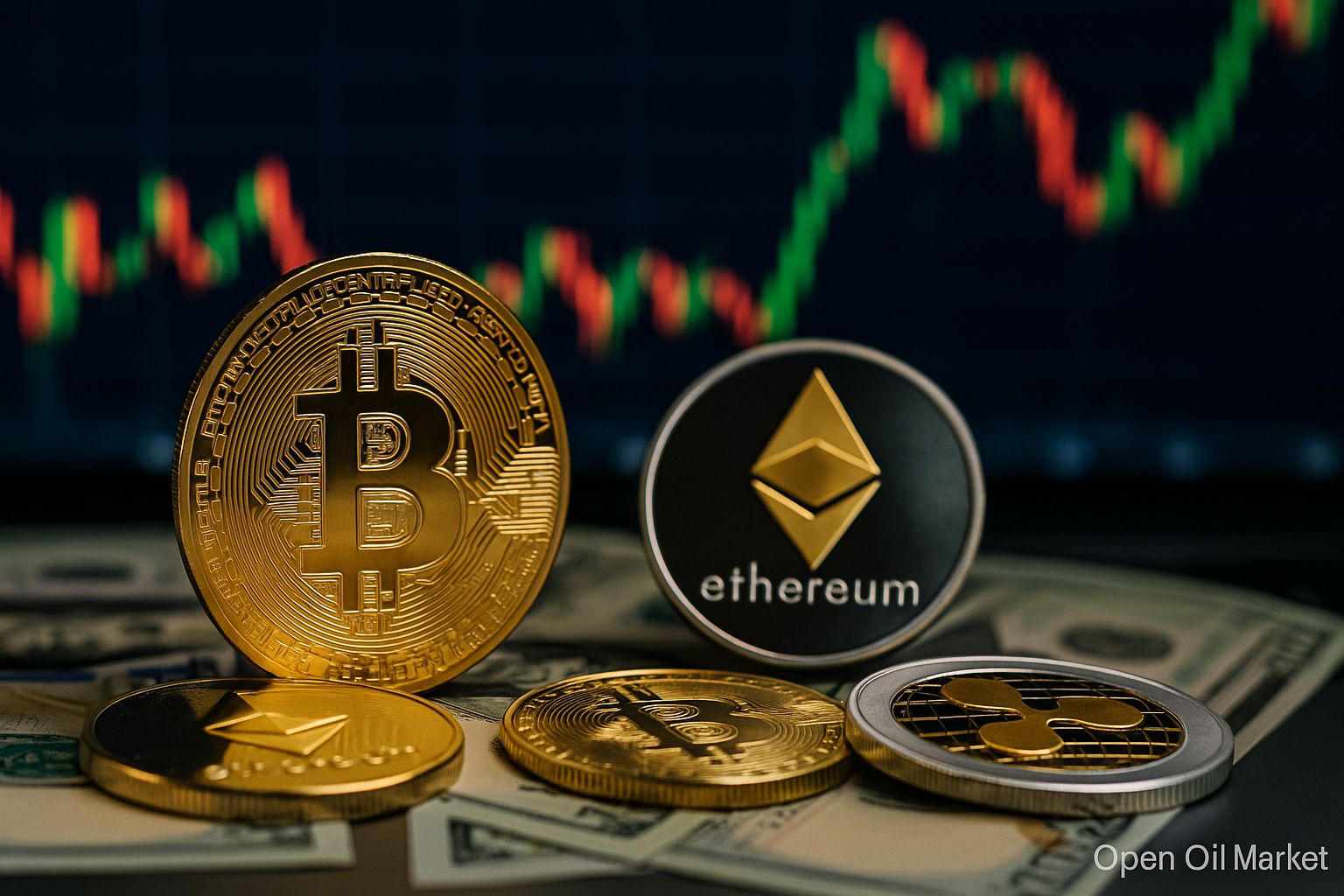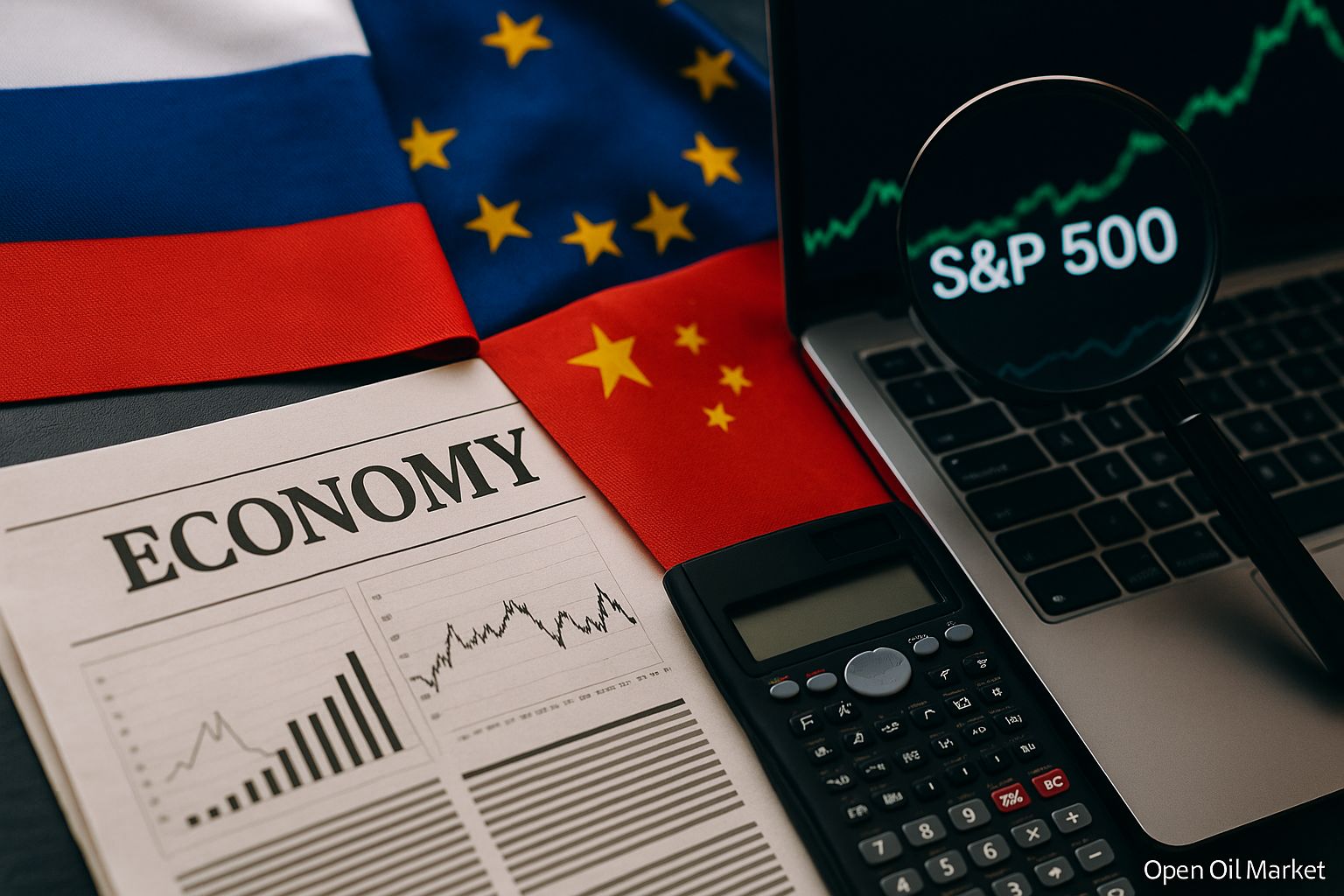
Current Startup and Venture Investment News as of September 1, 2025. Record Deals in AI, Growth of B2B Marketplaces, IPO Revival, and New Venture Market Trends. A Detailed Overview for Investors and Funds.
By early September 2025, the global venture market is showing a robust recovery after several years of decline. Investors worldwide are actively funding technology startups again—multi-million dollar deals are being made, and promising companies are reigniting their IPO plans. Major venture funds and corporations are returning with record-sized investment programs, while governments across various countries are expanding measures to support innovative businesses. As a result, private capital is flowing into the startup ecosystem, providing young companies with the liquidity they need for growth and scaling.
Venture activity spans all regions of the world. The United States continues to lead, particularly driven by explosive growth in investments in artificial intelligence, while the amount of funding for startups in the Middle East has doubled compared to the previous year. Europe has seen a shift as Germany overtakes the UK for the first time in the number of venture deals, solidifying the positions of continental hubs. India, Southeast Asia, and other rapidly developing markets are attracting record capital amid relative investor caution in China due to regulatory risks. The startup ecosystems in Russia and CIS countries are striving to keep pace despite external constraints. A new global venture boom is emerging at an early stage, although investors remain selective and cautious in their deal-making approaches.
Let's take a look at the key news and trends in the venture market as of September 1, 2025:
- The return of mega funds and major investors
- Record funding rounds and a new wave of AI unicorns
- IPO market revival
- Renaissance of crypto startups
- Defense technologies and robotics attracting capital
- Diversification of industry focus: fintech, climate projects, biotech
- A wave of consolidation: increased M&A activity
- Global expansion of venture capital
- Local focus: Russia and CIS countries
The Return of Mega Funds: Major Investors Back on Stage
The largest venture funds are triumphantly returning to the market, signaling a new surge in risk appetite. Japanese SoftBank is launching its third Vision Fund (~$40 billion) for investments in AI and robotics, while American a16z is forming a ~$20 billion fund for late-stage startups. Sovereign funds from the UAE, Saudi Arabia, and other Gulf states are also pouring billions into tech projects. The influx of "big money" is once again filling the startup ecosystem with liquidity, supporting the growth of valuations for promising companies while intensifying competition for the best deals, further boosting market confidence in ongoing capital inflows.
Record Rounds in AI and a New Wave of Unicorns
Investments in the artificial intelligence sector in 2025 have reached unprecedented levels. Since the beginning of the year, AI startups have raised over $120 billion in venture funding—about half of the global total, surpassing the entire 2024 figure. Investors are eager to back the most promising AI projects, leading to multi-billion dollar deals and soaring company valuations. A new wave of technological unicorns is emerging. Here are some of the largest recent rounds:
- OpenAI (USA) — raised a record $40 billion in investments (led by SoftBank and Microsoft) with a company valuation of ~$300 billion.
- Anthropic (USA) — closed a round of ~$5 billion at a valuation of around $170 billion.
- xAI (USA) — Elon Musk's startup raised $5 billion in its initial round (with SpaceX among the investors), reflecting corporate interest in new AI projects.
Ultimately, the excitement surrounding AI is leading to rapid valuation increases and fierce competition among funds for industry leaders.
The IPO Market is Reviving
Following a prolonged pause, tech companies are once again going public—and quite successfully. The year 2025 has been marked by a series of successful IPOs, restoring optimism among venture investors regarding exit prospects. Since the beginning of the year, approximately 230 IPOs have occurred on American exchanges—about 85% more than during the same period in 2024, indicating a noticeable market revival. Some of the largest recent offerings include:
- Figma (USA) — the cloud-based design software developer debuted on the NYSE with an estimated valuation of around $18 billion. Investor demand allowed shares to be priced above the forecasted range, doubling in value on the first day of trading.
- Circle (USA) — the issuer of the stablecoin USDC conducted a direct listing; its market capitalization exceeded $40 billion, with shares increasing more than 5 times from the offering price.
- CoreWeave (USA) — the provider of cloud infrastructure for AI went public in the spring (with an estimated valuation of ~$30 billion at the IPO), and by late summer, its capitalization reached ~$52 billion (a more than 2-fold increase in shares).
The success of these debuts is restoring confidence in the public market as an exit mechanism for venture projects. Many late-stage startups are once again considering IPOs as a viable growth option. By autumn, a queue of companies eager to seize the "window of opportunity" has formed—several new offerings are anticipated in the coming months (including from fintech and the crypto industry).
Crypto Startups Experience a Renaissance
The rise of the cryptocurrency market in 2025 has rekindled investor interest in blockchain startups and fintech projects related to digital assets. Bitcoin has approached its historical peak (around $120,000), instilling optimism in the industry and signaling the start of a new "crypto spring" after a lengthy winter. Against this backdrop, several major players in the market are stepping back into the spotlight.
For example, the cryptocurrency exchange Gemini has filed a confidential IPO application to raise capital for expansion, while digital asset provider BitGo also plans to go public.
In the private sector, venture financing of blockchain projects is gradually reviving compared to previous years of the "crypto winter." Investors are once again willing to take risks in the DeFi, cryptocurrency exchange, and Web3 infrastructure segments, hoping for greater regulatory clarity and mass adoption of crypto technologies. Although volumes are still far from the records of 2021, the sector is clearly coming back to life. New funds focused on digital assets are emerging, and successful public listings of crypto companies could attract even more capital into the industry.
Defense Technologies and Robotics Attract Capital
The geopolitical situation and technological breakthroughs are driving investment growth in the defense, aerospace, and robotics sectors. Startups developing security and military solutions are receiving funding not only from private venture funds but also with strong backing from government programs.
For example, American firm Anduril has raised approximately $2.5 billion for the development of autonomous drones and AI systems, while German startup Stark secured $62 million (with participation from a NATO fund) for the development of combat drones.
Diversification of Industry Focus
Beyond AI, venture investors are becoming active in other sectors, diversifying their portfolios. In the fintech sector, a new surge has been observed after a downturn: major companies are once again attracting significant funds (for example, Klarna secured an investment partnership of $26 billion for expansion into the U.S.), and several neobanks and payment platforms closed growth rounds—restoring investor confidence in fintech. Climate technologies are also a priority; funds are investing in renewable energy, energy storage, electric mobility, and waste recycling. A major climate fund has been launched in Europe, and startups in nuclear and hydrogen energy are attracting hundreds of millions of dollars in investments. The biotechnology boom continues: medical startups (with therapies targeting obesity, aging, etc.) are gathering significant rounds, and some biotech IPOs have shown multiple growth in stocks following listing. Investors are thus diversifying their investments—from finance and ecology to healthcare—aiming to reduce risks and cover a broader spectrum of innovations.
A Wave of Consolidation: M&A Deals
Alongside the investment upturn, there is a rise in mergers and acquisitions activity. High valuations of startups and fierce competition for new markets are pushing the industry toward consolidation. Major M&A deals are again taking center stage, reshaping the balance of power in the tech sector. For instance:
- Google + Wiz — Google has agreed to acquire the Israeli cloud cybersecurity startup Wiz for approximately $32 billion. This is a record for the Israeli tech sector and indicates the willingness of tech giants to pay top dollar for cutting-edge cybersecurity solutions.
- SoftBank + Ampere — SoftBank plans to acquire American processor developer Ampere for about $6.2 billion, which will strengthen SoftBank's position in the chip sector. This deal could become one of the largest of the year in the semiconductor segment.
Such mega-deals demonstrate the desire of tech giants to acquire advanced technologies and strong teams. The uptick in acquisitions and strategic investments indicates that the market is maturing: successful late-stage startups are either merging with each other or becoming targets for corporations, while venture funds are reaping the long-awaited profitable exits. The consolidation wave is already accelerating the growth of the most promising companies and reintroducing large capital into the ecosystem. This trend is expected to continue, especially in overheated segments that require significant resources.
Global Expansion of Venture Capital
The venture boom of 2025 is taking on a truly global scale. In addition to the US, Western Europe, and China, new regions are rapidly increasing investment. In the Middle East, the governments of the UAE and Saudi Arabia are channeling record amounts through sovereign funds into tech projects (startups in the region raised ~$2 billion over six months, +130% year-on-year). In India and Southeast Asia, venture deal volumes are breaking records, while Africa attracted ~$1.3 billion in the same period (+80%) thanks to significant rounds in Nigeria, Egypt, and South Africa. In Latin America, investments grew by ~20% in the second quarter, with Mexico overtaking Brazil for the first time in terms of deal volume due to large fintech rounds.
In Europe, Germany, France, and Scandinavia are leading, while growth in venture investments in the UK has slowed after Brexit. In Asia, the decline in activity in China is being offset by targeted state investments in strategic technologies, while India, Southeast Asia, and Israel maintain record deal volumes. The global startup ecosystem is becoming increasingly distributed: alongside Silicon Valley and China, new innovation hubs are emerging from Dubai and Bangalore to Nairobi and Mexico City, expanding horizons for venture investors.
Russia and the CIS: Adaptation and New Opportunities
The Russian venture market, which has experienced several challenging years, is gradually emerging from its "venture winter" and adapting to new conditions. Despite international constraints and capital outflows, some stabilization was noted in 2024, and by the end of 2025, market participants expect further revitalization. Domestic investors are launching new funds and initiatives to support local projects, while many Russian startup founders are seeking success abroad.
For example, in the spring, investment firm Kama Flow announced a new fund worth 10 billion rubles for late-stage financing, while fintech startup Plata (founded by former top managers of Tinkoff) reached an estimated valuation of ~$3.3 billion in the international market.
Overall, the venture ecosystem in the CIS countries is undergoing a restructuring phase: the focus is shifting to projects in IT, artificial intelligence, import substitution, and B2B services for large businesses. Experts note that the local market is gradually adapting to new realities. The most resilient teams continue to receive funding, with deals being made even at the seed stage. With economic stabilization and the development of internal support tools, the market has a chance to gradually recover and integrate into global trends.
OpenOilMarket — a global B2B marketplace that connects suppliers, buyers, carriers, and financial partners on a single digital platform. The service allows participants in the oil and gas market to carry out the full cycle of operations—from finding counterparties and closing deals to organizing logistics and financing, thus making global oil product trading more transparent and convenient for all participants.




